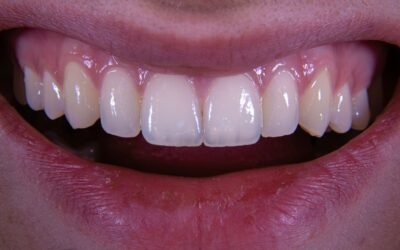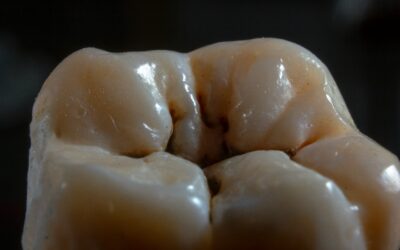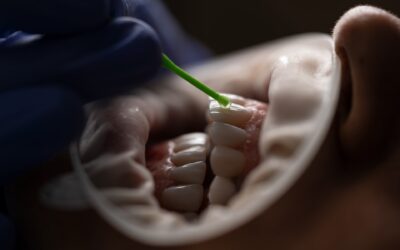Bad breath, also known as halitosis, is a common condition that can cause embarrassment and discomfort for anyone suffering with it. Whether it’s a persistent issue or something that comes and goes, bad breath can often be a sign of an underlying oral health problem. In this blog, we’ll explore what causes bad breath, how you can improve it and when it’s time to seek professional treatment.
What causes bad breath?
Bad breath can occur for many reasons, ranging from simple habits to more serious medical conditions. Here are some of the most common causes:
- Bacteria build-up: Failing to maintain good oral hygiene by brushing and flossing regularly will lead to a buildup of bacteria in your mouth, which causes unpleasant odours.
- Dry mouth: Saliva helps wash away food particles and bacteria in the mouth. If your mouth is dry due to things like medication, dehydration or mouth breathing, you are more likely to temporarily develop bad breath.
- Mouth and throat infections: Infections often produce foul-smelling discharge. If you have an infection in your mouth or throat, brought on by conditions like tooth abscesses or tonsilitis, you may suffer from bad breath until the infection clears.
- Medical conditions: Bad breath can be a common symptom of a wide range of underlying health problems such as diabetes, liver disease and gastrointestinal issues.
- Dietary choices: The odour of the meals you eat will be released when you exhale – so a diet consisting of food such as onion and garlic inevitably leads to bad breath.
- Smoking and tobacco usage: Smoking or chewing tobacco not only causes bad breath but also contributes to other oral health problems like gum disease and tooth decay.
How to get rid of bad breath
If unpleasant breath is causing you concern, there’s plenty that you can do at home to help reduce or eliminate it.
- Brush your teeth at least twice a day and floss daily also to remove food particles and plaque build-up.
- Drink plenty of water to keep your mouth moist and to ensure food particles and bacteria are washed away.
- Use mouthwash to kill any bacteria not taken care of while you brush or floss.
- Avoid smoking and other tobacco products
- If you wear dentures, retainers, mouthguards etc. be sure that they are cleaned regularly to prevent bad breath caused by trapped food or bacteria.
When to seek professional treatment for bad breath
If you are suffering from persistent bad breath, and your efforts to improve your dental hygiene or make lifestyle changes have not helped then it may be time to consult with a dentist and undergo a dental examination to determine the cause. Persistent bad breath lasting more than a few days could indicate a dental issue such as gum disease or tooth decay. Additionally, if your bad breath is accompanied by symptoms like a sore throat, fever, or pain in your jaw or teeth, it may signal an infection that requires professional treatment.
Other signs that warrant a visit to the dentist include mouth sores, bleeding gums or if you suspect your bad breath is related to a pre-existing medical condition like diabetes, acid reflux or liver disease. A healthcare professional can help identify the root cause and recommend appropriate treatment to address the issue.
Treatment options for bad bread
If your bad breath is being caused by a dental issue, then your dentist can work with you to treat the underlying problem.
- Teeth cleaning: If gum disease or plaque buildup is the culprit behind your bad breath, then the best course of action would simply be to remove the plaque and tartar from your teeth and gums. This can be done through standard deep cleans or via more sophisticated cleaning procedures like airflow polishing.
- Fillings: Bad breath caused by exposed cavities can be treated with standard tooth fillings, as they help to repair the damaged area and prevent further tooth decay.
- Prescription mouthwash: If regular mouthwash isn’t effective, your dentist may prescribe a stronger mouth rinse to help eliminate bacteria that cause bad breath.
- Tooth extraction: In some cases, if a severely decayed or infected tooth is the source of bad breath and cannot be repaired, tooth extraction may be recommended. Removing the problematic tooth can outright eliminate the infection or decay causing the unpleasant odour.
- Managing underlying health conditions: If your bad breath is related to an underlying medical condition such as diabetes or acid reflux, your dentist may refer you to a healthcare provider for further evaluation and treatment.
If bad breath is affecting your confidence or comfort, it’s important to seek professional advice to determine the best course of action. At Cheslyn Hay Dental Practice, our team can assess the underlying cause of your bad breath and recommend the most effective treatment, whether it’s a professional cleaning, treatment for gum disease or even tooth extraction in more severe cases.
We are here to help you achieve fresher breath and a healthier smile with personalised care. Contact us for expert advice and treatment at our practice in Walsall by booking an appointment online or calling us on 01922 214 702
What to do if you have another common dental issue?
Are you dealing with another common dental issue and unsure of the best treatment? We’ve explored the causes, preventative tips and treatment options for some of the most common dental problems, which you can read all about. Browse the list below to explore our informative blog posts on each topic.
Don’t let dental issues hold you back from enjoying a healthy, confident smile – explore our resources today to learn more about the best treatments and how to maintain optimal oral health.







